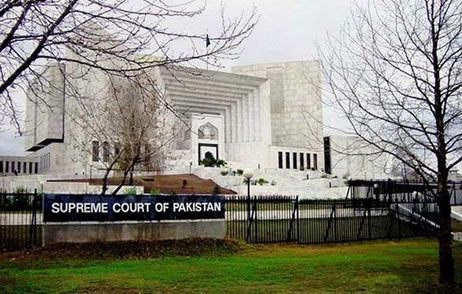The media is nothing if not predictable, and once again headlines are declaring a confrontation between the Court and the Executive. Once again the issue is the court’s NRO decision, and once again it appears to be a storm in a tea cup. In addition to the media circus, though, another point should be considered which is whether the judiciary’s myopic focus on cases against government officials isn’t actually undermining their very legitimacy.
Shahab Usto, a lawyer and an academic, makes this point in Daily Times.
More than 1.5 million cases are pending in the courts. In cahoots with an incompetent police, the lower judiciary in particular has utterly failed to render justice to the wronged masses. Due to the failure of the criminal justice system, the common man’s life, property and respect are eternally hedged to the discretion of powerful criminals and conmen. The hordes of land grabbing and criminal mafias are governing urban and rural life with impunity.
Yet, much of the flak is reserved for the government. The judiciary takes no blame for the slack rule of law. Unsurprisingly, on the 1-181 scale of the World Bank’s Business Index 2011, Pakistan stands at 154 as regards the enforcement of contract. This raises the question: who will come to invest in this country where commercial disputes are resolved in years and decades? Small wonder then that even local industrialists are relocating to other countries, even to Bangladesh and Sri Lanka, mainly due to the lack of protection to life and property.
In democracy, just as the survival and legacy of an executive hinges on its performance, the writ and independence of a judiciary also depends on its delivery. Remember, a delinquent executive and a discredited judiciary meet the same fate. People turn their backs upon them, making them fair game for the ‘third force’.
The NRO cases are decades old and getting older. There are not petitions being made over corruption in the present government, rather the courts are spending all their time on unresolved cases from the past – many of which are well known and even admitted to be politically motivated. Unfortunately, some still see them as useful political weapons. Imran Khan, for example, insists that charges against him and his arrest under Musharraf were politically motivated, but is unwilling to extend the same benefit of reasonable doubt to anyone else.
That’s not to say the NRO cases shouldn’t be resolved. Actually, they need to be resolved so that we can move on and stop dwelling in the past. If someone is legitimately guilty, they should be held accountable. But we should also be just as dedicated to clearing the names of the innocent whose reputations have been unfairly smeared for political expediency.
In the memogate case, it was declared in the media that Husain Haqqani would never return, that he had applied for asylum, that his wife was whisked away to Dubai…all lies. Actually, Husain Haqqani returned to Pakistan, turned over his Blackberry and demanded an investigation to clear his name. He’s shown no signs of leaving before any inquiry, so Nawaz Sharif’s petition before the court appears to be nothing other than a transparently political move. Sure, it’s hardly surprising that Nawaz would make this move – after all, he’s just playing politics which is his job – but we should hold the High Court to a higher standard.
No one should be above the law, that is true. But that does not mean that the courts can act on a whim. Just as it tears away at the legitimacy of the judiciary to take a position that lets the guilty off the hook, so too does it tear away at the legitimacy of the judiciary when it takes positions that appear to be motivated by political agendas such as allowing ‘witch hunts’ priority over the dispensation of blind justice. The judiciary needs to find a more sensible balance between high-profile cases that are popular with the media and resolving the cases that have an immediate impact on the day-to-day lives of ordinary citizens.
So long as the High Court is seen as a theatre of political drama instead of the neutral application of law, whether it is protecting or attacking officials it will be seen as illegitimate in the eyes of the people. The Supreme Court is supposed to serve as a model for the lower courts. If the common man is ever to find justice, the lower courts must have an example to follow of a responsible and objective High Court, not a political theatre.
![]()






